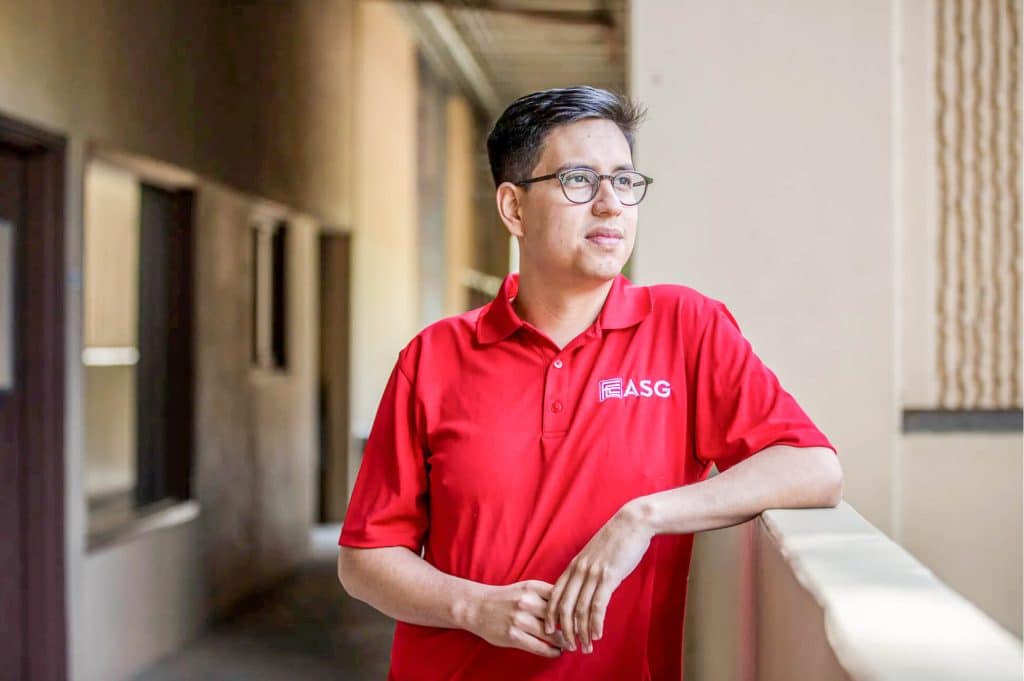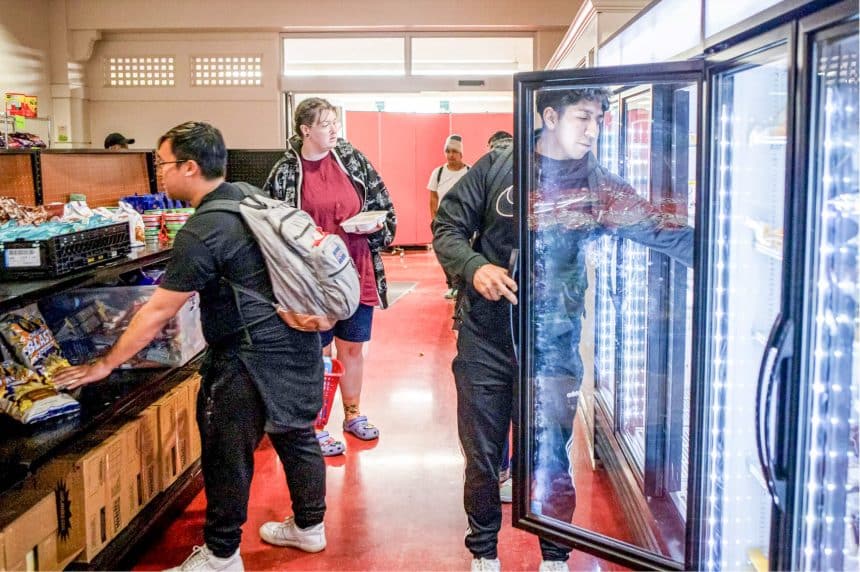Community Colleges
By Adam Echelman
The Ram Pantry serves more than 900 students a day, Monday through Thursday, with free food on the Fresno City College campus.
The college also offers subsidized housing for students facing homelessness, serving as many as 300 students a year.
Community colleges across the state have different programs aimed at combating problems students face such as homelessness, food insecurity, transportation and even healthcare in some cases. To help and make the system less fragmented for students, lawmakers included $100 million in one-time funding, plus $30 million in annual funding, in the 2021-22 state budget for community colleges to establish a “basic needs center” on each campus by July 1, 2022.
Roughly a third of the state’s 115 community colleges missed the deadline to establish a brick-and-mortar basic needs center, Rebecca Ruan-O’Shaugnessy, a vice chancellor at the community college chancellor’s office, told a state Senate subcommittee last week.
The portion of the 2021-22 budget that set the deadline doesn’t specify any kind of penalty for missing it.
The Community College Chancellor’s Office can withhold money from colleges that fall behind, however. But Paul Feist, a vice chancellor with the office, said its “goal is to limit harm on the very students we are trying to help.”
Just because a college has missed the deadline for establishing a physical, centralized basic needs center doesn’t mean it isn’t providing those services.
All of California’s community colleges are now providing students with some kind of support for basic needs, according to a draft report from the chancellor’s office.
Different timelines
In the case of Fresno City College and its Ram Pantry, for instance, the basic needs center required by the state won’t be finished until 2024, said Lataria Hall, vice president of student services. But the college still finds ways to help its students.
Like roughly one in five community college students in California, Mateo Vargas was homeless last year. He had been staying with relatives during his first semester at Fresno City College until one day in December 2021, they told him they needed the room back. He tried sleeping on other people’s couches, only to be pushed out again.
In a last resort, he pulled up a months-old email from Fresno City College that mentioned a survey students could fill out if they were at risk of losing their housing. He filled it out on a Friday, doubtful that anyone would really respond. On a Monday, he got a call.
In a matter of hours, the college found him a heavily subsidized apartment a few blocks away from campus, allowing him to pay $301 a month for a year while he gathered the savings and credit history to afford his own place.
When Fresno City College learned about the state dollars regarding basic needs centers, administrators decided to combine the money, roughly $1 million this year, with a federal grant. The plan is to renovate the existing food pantry to go “above and beyond,” offering additional services on-site such as mental health counseling and financial aid.
Hall said such a renovation wasn’t possible on the state’s initial timeline. Fresno City College received guidance from the chancellor’s office right before winter break in November 2021, leaving the school with a little more than 6 months for building construction.
“We were in a panic,” said Hall. “There was a lot of conversation within the state, like, ‘Where’s the guidelines? Where’s the criteria? Can we get more information?’ And we were in ongoing conversations with our state chancellor’s office, and they kept saying it’s coming but these are soft deadlines.”
The chancellor’s office denies ever saying the deadlines were “soft.” “We do not take liberties with creating deadlines that are different from those established in legislation,” Feist said.
Hiring impact
Other colleges that embarked on infrastructure projects faced similar challenges: Diablo Valley College in Contra Costa County will open its basic needs center “toward the end of 2023” because of delays regarding the construction of gender-inclusive bathrooms, said Brandy Howard, the college’s director of marketing. Cuesta College delayed the opening of its center to spring 2023 in part because of issues with paint, carpeting, and furniture.
Many community colleges across the state also missed the deadline to hire a full-time staff member in charge of basic needs. They cited procedural and administrative issues with human resources, or to avoid hiring hiccups, they repurposed existing staff roles, adding more responsibilities to already overtaxed employees.
Los Medanos College in Pittsburg hired its full-time position in October 2022, five months after the state deadline, though there was no gap in services to students because basic needs programs already existed.
In 2017, Los Medanos students partnered with private philanthropists to start a food pantry and clothing donation site, co-opting larger spaces over the years as the needs and supplies grew. Students continued to manage these services up until the advent of state funding allowed a full-time hire.
Now, the college’s basic needs center occupies a nondescript brown trailer at the corner of campus, but inside, it’s a buzz of activity.
On a spring day in April, students brought their friends to peruse through aisles filled with food, toiletries, and clothes, and they lingered at the intake table to catch up with the staff, some of the same students who preceded the center’s full-time hire. On average, the center has served approximately 238 people a month since opening last August, according to the center’s staff.
In the Senate subcommittee hearing, Ruan-O’Shaugnessy said all of the remaining campuses will have their basic needs centers in place by next month, a year after the state’s deadline and a year before Fresno City College plans to complete its center.
“The report and timelines for completion are based on what colleges communicated to us previously,” Feist said about the discrepancy.
The discrepancy also depends on the definition of a basic needs center.
At the Ram Pantry, students at Fresno City College access an array of basic needs services, even though the official basic needs center opens next year.
The chancellor’s office report says the data collected so far only provides a glimpse at the outcomes because the basic needs centers are so new.
Its report only includes data from 60 colleges, which have collectively served more than 47,000 students. More than half of those students received assistance with food, the report says. Assistance with transportation and technology were the next most common services delivered.
About 4,000 students in the colleges surveyed for the report — less than 1% of total community college students — received help with housing, including eviction assistance, emergency funds for rent payments, or referrals to the housing authority.
Vargas was one of those students. He said his experience finding housing assistance was seamless, but added that other services, like mental health counseling, located on another end of campus, remain siloed for students like him. The new basic needs center in Fresno will have the counselors’ offices next to the food pantry when the building opens next year.


For More News visit www.zapinin.com.



Very interesting subject, thanks for posting.Expand blog
You made some really good points on your post. Definitely worth bookmarking for revisiting. Also, visit my website YK3 for content about Cosmetic Treatment.
Impressive posts! My blog QH3 about Thai-Massage also has a lot of exclusive content I created myself, I am sure you won’t leave empty-handed if you drop by my page.
Muchas gracias. ?Como puedo iniciar sesion?